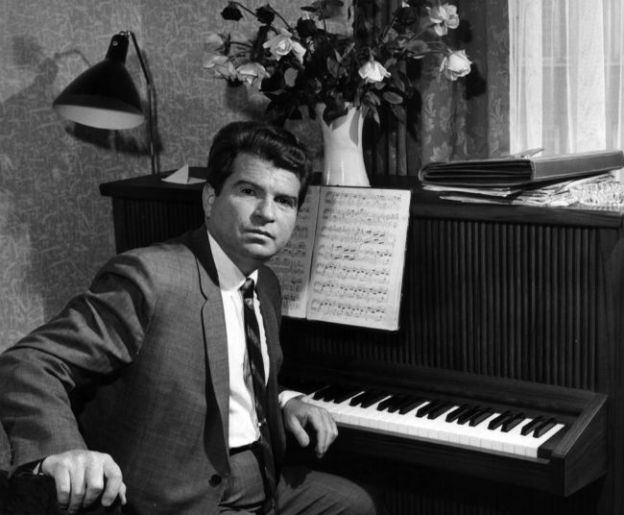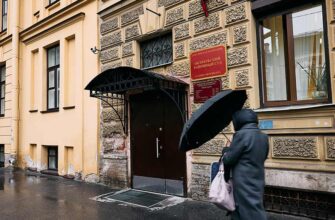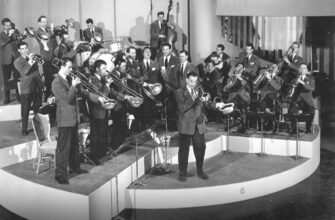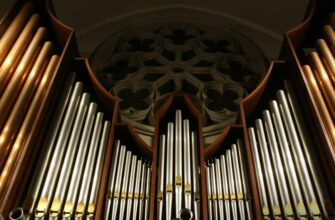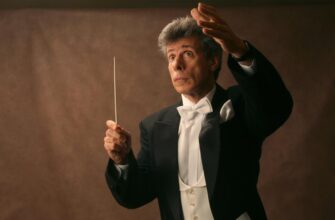October 2016 marked 100 years since the birth of pianist Emil Grigoryevich Gilels. The famous contemporary pianists will gather to honor his memory in the Grand hall of the Moscow Conservatory on December 12, 2016.
Emil Grigoryevich Gilels (1916 – 1985) was a pianist and teacher, the people’s artist of Russia. A graduate of the Odessa Conservatory, class of professor Berta Reingbald. A laureate of piano competitions in Moscow (1933), Vienna (1936) and Brussels (1938). Since 1938 – a professor in the Moscow Conservatory. The pianist’s repertoire included a wide range of works from J. S. Bach and D. Scarlatti to the music of the 20th century.
The pianists-graduates of the Moscow Conservatory Basinia Shulman, Alexander Gindin, Boris Bloch, and the Kaluga youth Symphony orchestra named after C. T. Richter (the conductor is Arsenty Tkachenko) will pay tribute to E. G. Gilels and play the works of L. V. Beethoven, C. Saint-Saëns, Edvard Grieg and W. A. Mozart, three piano concertos and a triple concert, which have a direct relationship with the repertoire of the great pianist. His grandson Kirill Gilels agreed to give an interview to the cultural and political magazine “E Vesti” and told us about the upcoming concert and the memory of his outstanding grandfather.
EV: Emil Gilels is a great pianist. It seemed to me, that the concerts devoted to him are held every year, as usual. Is it really so?
Kirill Gilels: You know, it is not quite so. There is a constant music project in the German city of Freiburg. It is a festival dedicated to Emil Grigoryevich, created by his student, our famous pianist Felix Gottlieb, who lives in Freiburg and teaches in the Music Academy. In 2006, he started a foundation, and since 2012, a music festival is held every two years in March, on which the great artists invited, such as Grigory Sokolov, Martha Argerich, Evgeny Kissin. During the festival the concerts, master classes are played. Dmitry Bashkirov is a good example. In 2018, the fourth festival should happen, and I hope it takes place, because it is troublesome, and I know firsthand, how much work and effort it costs to Felix Gottlieb (this is essentially like a creation of a Philarmonic).
This year there had a lot of concerts, because 100 years happens once in a lifetime. We had a great concert in the Philharmonic on the anniversary day. In October, Boris Berezovsky gave a concert in the Tchaikovsky hall in Moscow, Valery Afanasyev played in St.-Petersburg, the concerts were in Voronezh, Belgorod, Kemerovo and many different events took place in other cities. There are often small concerts, when the musicians want to honor the memory of Emil Grigoryevich, but I don’t get involved in their organization.
Some books, studies and articles had been published before the anniversary year. The most outstanding are the books of a professor G. B. Gordon, the books of a professor E. N. Fedorovich, the memories of the widow of Emil G., my grandmother F. A. Gilels. Grandmother wrote travel notes for all her life, and it was a pleasant surprise for me, that the book, despite its small circulation, had a strong impact. Be running ahead of the story, I can say that the same publisher will publish a full edition of the memoirs of my grandmother in the future, because it is a colossal work, and it is also the poems of grandmother. Also, there have been a number of TV shows.
I was particularly touched by two things: a film shot by a school teacher Svetlana Savelyeva (a musicologist by education), and a book released by Vladimir Babosinin an amateur researcher, admirer of E. G. Gilels, a radio engineer by profession. I have posted the pictures of his beautiful books, which will be exhibited in the Museum of Alexander Borisovich Goldenweiser.
The concert we’re talking about will take place on December 12, 2016. It was the initiative of B. Shulman, she wrote me that she had the idea and asked how I would react to it. I’m just grateful, I cannot treat it otherwise!
EV: Did Emil Gilels have a special attitude to Beethoven, Mozart, Grieg?
Kirill Gilels: Certainly. In general, Emil Grigoryevich had never performed what he did not like. In the last years of his life, his repertoire even narrowed. If earlier he had a period of searching, he played only the masterpieces in the last years. In 1986, he had to perform three chamber concerts of Mozart (the 12th, 13th and 14th concerts), but he died suddenly. He came from Helsinki and went to hospital to get some medical treatment. He was supposed to go on tour in Switzerland on the day of his birth on October 19, 1985.
Beethoven is a composer, with whom the whole life of Gilels was connected, starting from the first concert in 1929, where he played the “Pathetique Sonata”, to the last public concert in Helsinki in 1985, where he played the “Hammerklavier”. He had played Beethoven before the war and he was one of the first artists who started to perform the five concerts of Beethoven in cycles: three concerts in two days. In the years 1956-1957, the famous concerts together with Sanderling took place in Prague, Saint-Petersburg and Moscow. There is also a cult record with George Szell, recorded in Cleveland in 1968. Also there is a recording with Masur in Moscow, and many other performances.
Grieg is a big love of Emil Grigoryevich. He made all to make a record with lyric pieces by Grieg. Even when it was almost impossible in the Soviet times, he insisted that this album was recorded by a famous German record label “Deutsche Grammophon”. There are lots of recordings of this concert, for example a recording with maestro Muti (1979), as well as a recording with Svetlanov.
As for Saint-Saëns, there was a recording of “Carnival of the animals” in 1951. That concert was performed by Emil Grigoryevich, Jacob Zack and Daniel Shafran.
Emil Grigoryevich did not play a triple concerto. There is a version of this concert for two pianos, but it is not from the repertoire of Gilels. This concert is a dominant feature of the evening, because four concerts played for an evening is an enormous load upon the artists, the orchestra and the audience.
EV: By the way, will it be interesting for amateurs to attend the concert?
Kirill Gilels: I think, yes, because this is a good opportunity to hear several masterpieces of classical music in one evening. The third Concerto of Beethoven is his most famous concert. As for the Grieg, it’s his only concert, which is also a masterpiece. As for Saint-Saens, there was an opinion among the Soviet musicologists that it was a bourgeois music. Emil Grigoryevich used to say on it: “They don’t understand, this is a champagne”. Gilels has been performing this concert for all his life. There was a wonderful recording of this Concerto with maestro Eliasberg in March 1951. There was also a recording with the state orchestra in 1982.
So, the program has been chosen is not at random, but is connected with Gilels. The French, German, and Norwegian music is a stunning combination. I am sure, the audience will not regret the time spent. These are the eternal works, that will delight people for centuries to come.
EV: How often did Gilels participate in the concerts devoted to other musicians?
Kirill Gilels: He had friends from the music world. When Yakov Vladimirovich Flier passed away, he played a concert in memory of him. When Leonid Borisovich Kogan died, Emil Grigoryevich took it heavily and he even cancelled the upcoming performances, which was a rare case. When there was a concert in memory of B. M. Reingbald, he came to Odessa to play on a day of the 30th anniversary of her tragic death. The local authorities, forbade to call that concert a concert in memory of Reingbald under various pretexts, but Emil Grigoryevich threatened to cancel the concert and report on it in Moscow. Then the officials allowed allowed naming the performance a concert in memory of Reingbald.
The program of the evening:
L-Beethoven. Concerto No. 3 c-moll, performed by Boris Bloch
- Saint-Saens. Concerto No. 2 g-moll, performed by Basinia Shulman
- Grieg. Concerto a-moll performed by Alexander Ghindin
- A. Mozart. Concerto for three pianos F-Dur K242. Performed by Boris Bloch, Basinia Shulman, Alexander Ghindin
